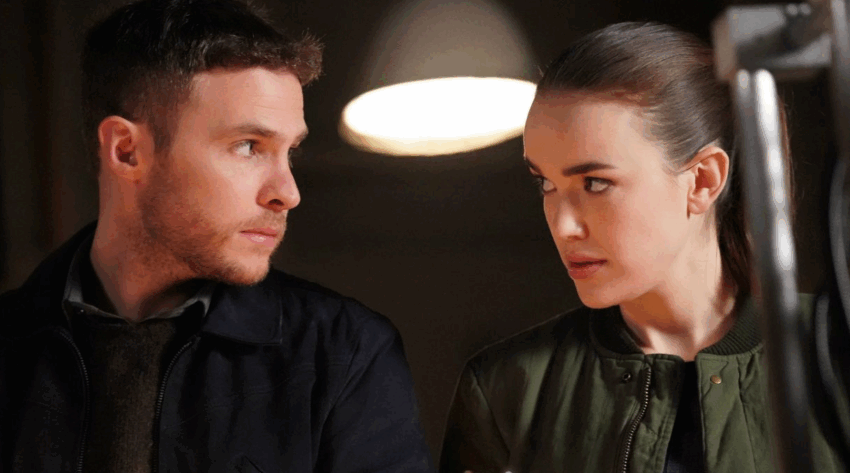We’ve all been exposed to some of the classic soap opera plot points that are so cliche that they’re not only found in almost every soap opera, but also mocked across other shows and media. There’s always a secret twin, a hidden lover, or a covered-up crime that keeps the audience bouncing from one heart-jerking moment to another. Emotional whiplash like this is not only exhausting, but very quickly grows to bore the audience. The emotions fail to land and instead grow repetitive.
Last week we talked about an important principle that can keep this sort of whiplash from happening. But what can you do to make sure the handful of emotional scenes you do have don’t grow old?
Today, we’re looking at Marvel’s Agents of SHIELD to see how you can take plot points that seem like they should go into a soap opera, but instead create truly compelling moments between your characters.
Agents of SHIELD
In a world where superpowered individuals, aliens, and beings with god-like abilities have become the norm, the government has responded by creating a branch they hope can ally with the world’s mightiest heroes to combat possible threats. This branch is known as SHIELD and is made up of spies, combat experts, and scientists.
Jemma Simmons and Leo Fitz (collectively known as FitzSimmons) are two scientists working for SHIELD. At first, they love their work — they get to stretch the limits of science while helping people who are vulnerable. But things get complicated when they discover SHIELD has been taken over by a terrorist organization. Their group is disbanded and Jemma and Fitz are captured by those who were once their allies. While they’re trapped together, Fitz decides to finally admit that he loves Jemma, just before he sacrifices himself so that she can escape.
Although Jemma is able to save Fitz just before he dies, he suffers brain damage in the process. He begins hallucinating and struggles to put the thoughts that are plaguing him into words. He becomes withdrawn and nervous, still haunted by what he’s been through. And although their team regroups and attempts to discover a new normal, no one knows if he’ll ever be the same.
This is just the beginning of the struggles between the two of them. Their relationship is one of the longest slow-burns out there, and it takes over seven years for them to come to a meaningful resolution. They fight for each other mentally, physically, and across different planets. Both of them are kidnapped, tortured, and traumatized until they become completely different people. They look for each other across different timelines, among aliens set out to kill them, and while they’re separated by billions of miles of space. New challenges and impediments to their relationship are always around the corner, which would seem to place them as a typical soap opera romance. Yet somehow, the series of heartbreaking events that keep them apart stay meaningful and compelling without seeming repetitive. And this is all due to a simple principle for writing emotional scenes:
Variety generates interest.
Variety Generates Interest
The way that FitzSimmons relationship stays relevant and interesting is that each new event or concept that brings conflict between them is different from the one before and nothing like the ones that come later. In the first season, conflict arises because Fitz is unwilling to tell Jemma how he feels, afraid that it will ruin their friendship if she doesn’t reciprocate. Although Jemma senses there might be more going on beneath the surface, she’s content to remain friends and feels no obligation to push Fitz.
Throughout the second season, they struggle with Fitz’s illness and the fact that he wasn’t willing to admit a years-long interest until they were just about to die. Fitz is unable to verbalize or even mentally grapple with his own feelings, and Jemma is conflicted on what to feel about Fitz. She loves him as a friend but isn’t sure she can offer more, plus he’s already changed so much since they met that she’s not sure he’s even the same person anymore. Both of them struggle to communicate effectively while he remains in his current state, and so for a long time their relationship remains locked in a sort of stalemate.
In the third season, they struggle with conflicting attractions when a new love interest is introduced. In the fourth, extenuating circumstances push them to make choices they never thought they’d have to, and they struggle with the compromises they’ve made on their morality — and if they’re even worthy of each other any more.
The point of all this is just to show that every single challenge and long-term obstacle to their relationship is something entirely different and unique from what they’ve experienced before. Unlike so many soap operas, where conflict is consistently centered around romantic or interpersonal drama, the challenges to FitzSimmon’s relationship come from all different angles. In some cases, their relationship was clear but outside forces made resolution impossible. At other times, more typical interpersonal issues caused friction between them. Throughout the second season, Fitz’s struggle with disability made communication difficult or impossible. And just when you thought things might be resolving, a wrench would be thrown in their plans from a completely new direction.
Both characters grow and change. They learn how to cope with or conquer the challenges they’ve faced before, but the writers introduce new emotions, fresh obstacles, and completely unique situations that push them apart and make their slow-burn interest for each other make sense. They weren’t just revisiting old challenges, flaws, or obstacles that we thought they’d tackled long ago. Instead, they faced something that pushed them so far out of their ever-expanding comfort zone that neither of them were in any way prepared to deal with it.
Part of what makes soap-opera romances so unrealistic is the fact that the characters never grow, change, or mature — because if they did that, they’d be able to work around their newest romantic challenges disappointingly quickly. Don’t stunt character development for the sake of the emotional moments that you have planned. Let them grow and mature and deal with forces that legitimately push them out of their comfort zone, even if it’s already been expanded over and over again.
So if you’re facing a series of emotional moments that you’re afraid will grow repetitive or won’t hit as hard as the first ones, make sure they arise for completely different reasons. Don’t consign your characters to only dealing with relational drama. At the same time, don’t limit the obstacles they face only to external circumstances. If your emotional moments come about from the same few events with a very similar formula between them, the tension will seem contrived and the emotional moments won’t hit. But if you can give your characters new obstacles that stress their relationships and challenge them as individuals in completely different ways, you’ll be able to write emotional scenes that hit with incredible impact.



Let us know in the comments:
What stories have you noticed were able to have dramatic scenes that remained meaningful because of the variety of the conflict that caused them?


Hi! My name is Mara, and I’m a Christian artist, violinist, and blogger. I remember the day that I decided that I would learn something new about what makes a good story from every book I picked up — whether it was good, bad, or a mixture of both. I use this blog as a way of sharing some of the tips and tricks I’ve learned, and highlight which books, cartoons, and movies have taught me the most about writing an awesome story.


Great article 🙂
also i really love agents of shield (especially fitzsimmons!) blame your sister, mara.
Yup, that sounds like her! And you’re right, Agents of SHIELD is awesome. 🙂